Can I Live Permanently in a Static Caravan?
Can I live in my static caravan?
Many people up and down the UK have dwelled upon this question and given thought to the advantages and disadvantages of permanently living in a caravan.
People have noted the money-saving aspects, with reduced council tax and the lack of a huge mortgage. Others have pondered over the idea of living out in the countryside in a quaint, yet well-equipped home. And some people see it as a stop-gap, allowing them to save enough money to go on to purchase their dream home in the future. But there’s not a lot of information out there about living in a static caravan.
That’s why we thought we’d put together this guide, breaking down for you the different things that we feel you should consider. We’re going to tell you all about the legal aspects of living in a static home, as well as covering all of the other things that we feel are relevant and important.
Can you live permanently in a static caravan?
The answer to this question is very much “it depends”. This is because there are a number of different factors at play. In some instances you will be able to live in your static caravan, and in other cases, you won’t be able to. Throughout this article, we’ll explain the reasons why this is the case. First and foremost, the location of your caravan will play a big role in whether or not you’re able to live in it. So let’s take a look at where you might want to place your static caravan.
Can you live permanently in a caravan park?
Again the answer to this very much depends on the type of caravan park you wish to live in. So, to give you all the information you need, we have split this answer into two different sections that focus on holiday caravan parks and residential caravan parks.
Can you live permanently in a holiday park?
The short answer to this question is “no”. You cannot live permanently in a static caravan that is situated within a holiday park. In the UK, the Mobile Homes Act 1983 specifies that a person can only live in a static caravan all year round if it is located in a caravan park that has a permanent residential license. In most cases a holiday park will not have this licence and will not allow people to live on-site. Most holiday parks will have a set agreement with their local authority that usually makes up a part of their planning permission. This agreement will ensure the holiday homes on-site will not be used as permanent dwellings. This will be the case even when holiday parks have a 12-month holiday licence. These caravan parks will usually have a set time limit on how long a person can stay in their caravan in one spell. In some cases, holiday parks may even close at certain points of the year. When you look at the paperwork to purchase a static caravan in a holiday park, the contract you sign will usually include legal terms and conditions that specify the maximum number of consecutive nights you are allowed to stay on-site. Despite all of this, some rogue caravan salespeople may still try to sell you a static caravan on a holiday park under the pretence that you can live in it. Be extremely wary of this. The chances are, the person selling you this caravan is breaking the law and if you did sign on the dotted line, it is most likely that you will be the one facing the consequences if the situation is discovered by local authorities down the line.
Can you live permanently in a residential park?
Yes you can live permanently in a residential caravan park. The name “residential park” describes a park that is specifically designed for people who want to live there and these parks will have the required licence to allow you to do so. If you do decide to purchase a static caravan in a residential park, it’s worth noting that this is a distinctly different experience from buying one on a holiday site. It bears more resemblance to working with an estate agent than haggling with a caravan dealer. Expect discussions to revolve around selling your current property, timelines, and the specifics of what you’re seeking in a new location. After all, this isn’t just a holiday spot; it’s your future home, so every detail needs to be meticulously considered. The importance of location cannot be overstated. Visiting potential parks is crucial before making any commitments. Equally vital is confirming that the park holds the correct licences for permanent residency - as previously mentioned. A reputable site should have no hesitation in presenting the necessary legal documentation to you if asked. If there’s any reluctance or vague responses, it could indicate underlying issues. If this happens, it’s wise to walk away and explore other parks that offer clear, upfront agreements with the local council. Transparency is key when choosing a location for what could be your forever home.
Can I live permanently in a static caravan on private land?
But what if you don’t want to live in a caravan park at all? What if you want to place your static caravan on private land? Well, there are a number of factors that come into play here too. If you are a private landowner then you will want to consult your local authority before placing a static caravan on your land. This is because in some cases, placing a caravan on a piece of land, counts as a change of use. This means you may require planning permission. When filling out your planning application you’ll need to outline how the use of a caravan on the land will affect the surrounding environment and the local infrastructure. Whether your application will be successful or not, largely depends on factors such as the size and location of the land and whether the caravan aligns with local planning policies. In some cases, you will not require planning permission. This is the case if the caravan is being placed on private land as a temporary addition to an existing property. For example, if you’re renovating your home, you may wish to temporarily live inside a static caravan - very much like the families on TV’s Grand Designs! This exception to the planning rule is outlined in the Caravan Sites and Control of Development Act 1980. Yet, it’s crucial to note that this exception applies only if the caravan is not a permanent residence. If you’re not a homeowner and are renting land, then you’ll need to ensure that you have secured the relevant permission in order to place a caravan on the location. Tenants who fail to confirm this could face forced removal if the local authority takes action against the landowner. Beyond planning concerns, practicalities such as utilities and access must also be considered. Connecting a caravan to electricity, water, and sewage systems can involve further regulations and, in some cases, additional planning approvals. Moreover, creating or modifying access roads might also require permission, which can add another layer of complexity to the process. Understanding these legal and logistical requirements can help avoid potential pitfalls and ensure that the transition to static caravan living is as smooth as it is liberating.
How much does it cost to live in a static caravan?
Living in a static caravan in the UK offers an alternative to traditional homeownership, but it comes with its own financial considerations. The primary expense is ground rent or pitch fees, which can vary significantly depending on the park’s location, facilities, and overall appeal. Premium parks with scenic settings and better amenities typically charge higher fees. Beyond ground rent, there are several additional costs to keep in mind:
- Energy costs: Many parks run their own energy meters, and rates can differ from standard tariffs.
- Council tax or rates: If the caravan is classified as a permanent residence you may be liable for council tax.
- Insurance: Caravan-specific insurance is crucial, covering risks like storm damage or vandalism, but premiums can vary.
- Water bills and additional charges: Access to utilities may incur separate charges or be included in the fees that the caravan site will charge.
While static caravan living can be a more affordable alternative amid soaring house prices, it’s essential to clarify these costs with park operators beforehand. By understanding all associated expenses, you can enjoy a simpler, cost-effective lifestyle free from the burdens of traditional property ownership.
Things to consider when looking for a residential caravan park to live on
If you have decided to take the plunge and live permanently in a residential caravan park, then you’ll need to make sure you pick the right park that’s perfect for your specific needs. The location can really make or break your living situation.
Here are just some of the things that you need to think about when looking at caravan parks:
- What are the site amenities like and what else will you need?
- How far away are the local shops?
- Are you able to get supermarket deliveries to the site and where is the nearest supermarket located?
- Is there a pub on-site or nearby?
- Does the site have good access to public transport?
- What is the nearest town to the site and how easy is it to get to?
- Are you nicely placed to still have access to your favourite pastimes and hobbies, this could mean looking to see if the following places are nearby:
- Cinema
- Bowling
- Swimming
- Golf
- Bingo
- Tennis
- Does the site stay open over winter?
- Are there takeaway restaurants nearby and can you get deliveries to the site?
When it comes to choosing a home, you should thoroughly inspect the model you’re looking at. Most parks offer viewing options, and manufacturers often have dedicated showgrounds. Finally, seek solid legal advice to navigate the buying process, especially if you’re also selling. And remember: unlike traditional homes, static caravans can’t be mortgaged - so explore available finance options and shop around carefully.
What are the pros and cons of living in a static caravan?
Pros:
So, what are the actual benefits of living in a static caravan? Well, for starters, they offer an opportunity to downsize into cosier, more manageable living spaces, often sitting within tight-knit communities.
Secondly, this alternative to traditional housing is not only more affordable to purchase, but it also tends to incur lower running costs. Energy costs, for example, can be reduced thanks to the exceptional insulation and energy efficiency of models.
Many static caravans also benefit from enhanced security features, including round-the-clock surveillance and gated access, which deter intruders. Such measures often make insuring a static caravan less expensive than insuring a conventional property, as the heightened security protects both the home and its contents.
Cons:
While static caravans present an attractive alternative to traditional housing, they come with their own set of disadvantages that you should carefully consider. One of the most significant drawbacks is the space limitation. Static caravans typically offer much less living space than conventional homes, which can pose challenges for larger families or individuals accustomed to more spacious environments. This reduced space may lead to difficulties in storage and daily living, making it essential for residents to adopt a more minimalist lifestyle. Another critical concern is the depreciation of static caravans. Unlike traditional brick-and-mortar homes, which often appreciate over time, static caravans tend to lose value. This can make them a less viable long-term financial investment, raising questions about the future resale potential for owners. For those considering a static caravan as a long-term residence, understanding this aspect is crucial in evaluating its financial implications. Weather vulnerability is also an issue. Static caravans generally lack the robustness of traditional houses, meaning they’re more susceptible to damage from severe weather conditions such as strong winds and heavy snowfall. This vulnerability can result in costly repairs and a heightened sense of concern for residents during adverse weather events. So there you have it, living in the countryside in a well-equipped static caravan can offer an idyllic way for you to live. The possibility of permanent residency largely depends on the type of caravan park. Static caravans situated in holiday parks typically cannot be lived in year-round, as these parks lack the required permanent residential licences. Contracts for such parks usually stipulate limits on consecutive nights of stay. In contrast, residential caravan parks are designed for full-time living, boasting the necessary licences and a more stable living environment. For those considering private land, planning permission may be required, especially if the caravan represents a change of use. It's essential to consult local authorities to ensure compliance with regulations, as well as to manage practical considerations like utility connections. Understanding these legal and logistical requirements is crucial for a smooth transition to static caravan living.


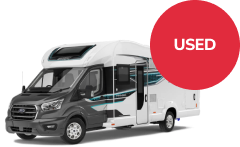


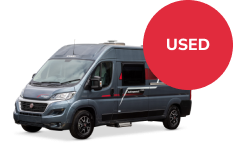


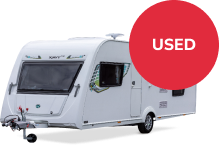
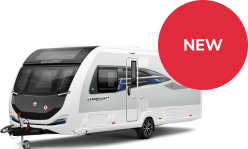
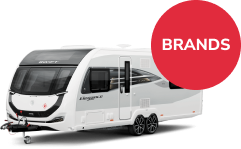
 Spidersnet
Spidersnet